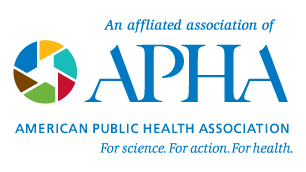OPHA Health Policy & Advocacy Committee
House Bill 2261 Banning Smoking in Cars with Children Present Status - Died in committee Summary - House Bill 2261 aims to create an offense for smoking inside motor vehicles carrying children under the age of seventeen. Proposed consequences under House Bill 2261 include a Class D traffic violation with a maximum fine of $90 for the first offense, a Class C traffic violation and a $180 fine for the second offense, and a Class D traffic violation with a $360 fine for the third or subsequent offense. The bill clearly states that the smoking of cigars, cigarettes or tobacco in any form will fall under this law if passed. Chief Sponsor – Former Representative Chuck Riley Public Health Background - In 1992 the U.S. Environmental Protection Agency classified secondhand smoke as a class A human carcinogen. As the 2006 Surgeon General’s Report concluded, there is no level of secondhand smoke exposure that may be considered risk-free. Of the 126 million nonsmokers who are exposed to secondhand smoke in the U.S. each year, children are especially vulnerable to the damaging effects of secondhand smoke because of their smaller and developing organs. Exposure among children has been associated with a number of detrimental health effects including bronchitis, asthma, pneumonia, sudden infant death syndrome, and middle-ear infections. Studies have shown that toxin levels created by secondhand smoke cause air pollution levels inside of cars to be ten times the highest hazard level on the Air Quality Index set by the U.S. Environmental Protection Agency. A study on the effects of smoking inside a motor vehicle performed by John Hopkins University found a 95% increase in air nicotine concentrations per cigarette smoked. Public Health Benefits – If passed, House Bill 2261 will undoubtedly benefit Oregon’s children by limiting their exposure to secondhand smoke. While the passage of legislation such as Oregon’s Smoke-Free Workplace law have lowered the dangers present in many public domains, private domains such as the home and motor vehicles remain largely unregulated. Direct medical costs of secondhand smoke exposure among U.S. children have been estimated to total approximately $4.6 billion per year. In the U.S. alone, as many as 26,000 new cases of childhood asthma may be attributed to parental smoking each year. House Bill 2261 will both lower the direct medical costs associated with secondhand smoke exposure and improve the health and well-being of Oregon’s children. Key Points
Key Supporters
Oregon Public Health Association (endorsed a similar bill in 2009)
|

